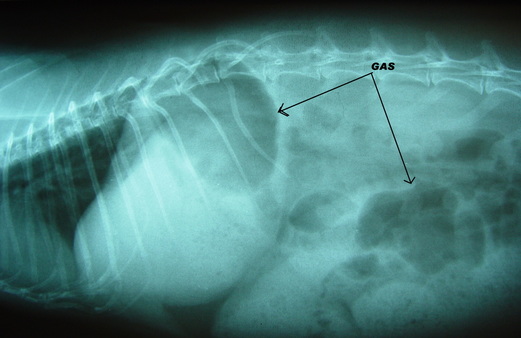Gastrointestinal Stasis in Rabbits
Association of Exotic Mammal Veterinarians: aemv.org
Photos and edited by Susan Horton, DVM
Photos and edited by Susan Horton, DVM
If your rabbit is not eating or producing stool for 8 hours or more, we suspect this rabbit may be experiencing gastrointestinal stasis. You can read the paragraphs below for a better explanation, but you should be calling us or the emergency room for help. 847-329-8709.
Gastrointestinal stasis is a potentially dangerous condition in rabbits, where muscular contractions of the stomach and intestines are reduced, and normal bacteria in the digestive tract become out of balance. Rabbits can quickly become lethargic, may exhibit signs of pain such as teeth grinding and a hunched up posture, and begin to produce excessive gas, and sometimes soft stool or diarrhea. Left untreated, severe cases of gastrointestinal stasis can be fatal.
There are many causes of gastrointestinal stasis, including stress, dehydration and anorexia from other underlying medical conditions, or gastrointestinal blockage. A common cause is lack of crude fiber in the diet, most specifically hay. Hay is essential for normal gastrointestinal function. Pellets contain hay, but some brands contain many other types of ingredients, and are chopped and processed to a finer, more easily digested product, which is actually not to the rabbit’s overall benefit. Hay also provides the best environment for growth of the beneficial bacteria growing in the rabbit’s digestive tract, and allows passage of hair that is normally ingested by the rabbit during. Without adequate fiber, hair may accumulate in the stomach, causing a partial or complete blockage, since rabbits are unable to vomit. The rabbit may feel “full” and appetite often decreases. When the bacterial population in the digestive tract changes, gas-forming bacteria may proliferate, causing painful, excessive gas accumulation. Some gas-forming bacteria produce deadly endotoxins that can cause rapid death.
Gastrointestinal stasis is a potentially dangerous condition in rabbits, where muscular contractions of the stomach and intestines are reduced, and normal bacteria in the digestive tract become out of balance. Rabbits can quickly become lethargic, may exhibit signs of pain such as teeth grinding and a hunched up posture, and begin to produce excessive gas, and sometimes soft stool or diarrhea. Left untreated, severe cases of gastrointestinal stasis can be fatal.
There are many causes of gastrointestinal stasis, including stress, dehydration and anorexia from other underlying medical conditions, or gastrointestinal blockage. A common cause is lack of crude fiber in the diet, most specifically hay. Hay is essential for normal gastrointestinal function. Pellets contain hay, but some brands contain many other types of ingredients, and are chopped and processed to a finer, more easily digested product, which is actually not to the rabbit’s overall benefit. Hay also provides the best environment for growth of the beneficial bacteria growing in the rabbit’s digestive tract, and allows passage of hair that is normally ingested by the rabbit during. Without adequate fiber, hair may accumulate in the stomach, causing a partial or complete blockage, since rabbits are unable to vomit. The rabbit may feel “full” and appetite often decreases. When the bacterial population in the digestive tract changes, gas-forming bacteria may proliferate, causing painful, excessive gas accumulation. Some gas-forming bacteria produce deadly endotoxins that can cause rapid death.
Treatment of gastrointestinal stasis varies depending on severity and underlying cause. Recovery is often slow and may take several days to weeks.
Produced by the Association of Exotic Mammal Veterinarians: aemv.org. 2005
- Fluid therapy: Many affected rabbits are dehydrated or suffering from electrolyte imbalances.
- Simethicone: This medication helps to reduce the amount of gas in the digestive tract.
- Gastrointestinal motility drugs: These drugs can help stimulate the digestive tract to begin working again.
- Pain relief: This is important to relieve discomfort associated with gastrointestinal stasis and distention.
- Hand feeding: Many rabbits with this condition have decreased to no appetite. It is often important to hand, or force-feed liquid hay products with a syringe (Critical Care, Oxbow Pet Products).
- Hay: rabbits that will eat on their own must be encouraged to eat grass hay.
- Treatment of other underlying medical problems: If examination and testing reveal additional medical problems, these must be treated as well.
Produced by the Association of Exotic Mammal Veterinarians: aemv.org. 2005

